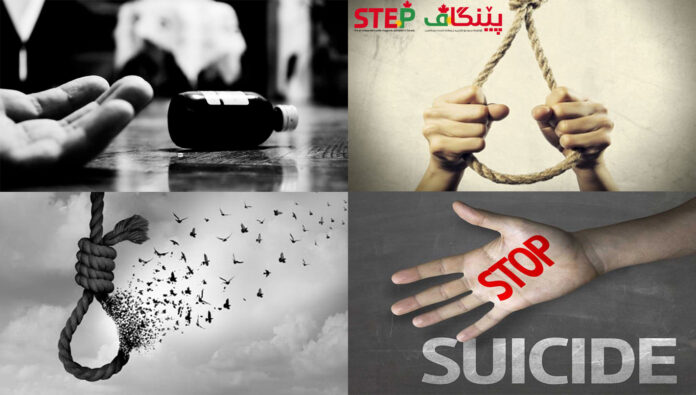Leyla Eskender
Introduction
Suicide among Kurdish youth is a devastating crisis that rarely makes headlines, hidden behind a veil of silence and shame. Despite the profound toll it takes on families and communities, there is a glaring shortage of research on this issue. Many Kurdish families consider mental health a private matter—a subject to be concealed rather than discussed openly. Consequently, even when warning signs such as severe mood swings or withdrawal become evident, they are frequently dismissed as mere rebellious behavior rather than recognized as indicators of deep-seated depression. This pervasive silence, fueled by stigma and misunderstanding, leaves vulnerable young lives at risk. It is time to break this silence and confront the harsh reality of youth suicide within our communities.
The Scarcity of Research on Kurdish Youth Suicide
Research on Kurdish youth suicide is exceedingly limited—not because the problem is insignificant, but due to systemic and cultural barriers that hinder open discussion and accurate reporting. In many Kurdish regions, governmental suppression and pervasive cultural stigma force families to hide their struggles. As a result, suicides are often underreported or misclassified, rendering the true scope of the crisis invisible. Reports from organizations such as the World Health Organization (WHO, 2017) and regional analyses (Al-Hasan, 2019) have noted that mental health issues in Kurdish communities are grossly underestimated, underscoring the urgent need for more comprehensive studies.
Understanding the Causes
The rising rates of suicide among Kurdish youth stem from a complex interplay of cultural, social, and personal factors:
- Cultural and Family Pressure
Kurdish youth frequently grow up under intense pressure to excel academically and conform to strict social norms. The overwhelming fear of bringing shame upon the family forces many parents to suppress or ignore mental health struggles, thereby delaying crucial interventions. - Stigma Around Mental Health
In many communities, mental health issues are perceived as personal failings or signs of weakness. This stigma discourages open discussion and prevents individuals from seeking help, leaving depression and suicidal ideation to intensify in isolation. - Parental Illiteracy and Lack of Awareness
A significant number of parents, particularly those with limited education, are often unable to recognize the early warning signs of depression. Behaviors such as withdrawal, mood fluctuations, or a marked loss of interest in daily activities are frequently misinterpreted as disobedience rather than cries for help. - Domestic Violence and Strict Parenting
In some households, harsh disciplinary measures and even domestic violence contribute to an environment where youth feel trapped and hopeless. This fear and isolation further exacerbate emotional distress. - Identity Struggles and Isolation
The challenge of reconciling traditional expectations with the demands of modern life can leave Kurdish youth feeling isolated and misunderstood. This internal conflict deepens feelings of loneliness and despair, increasing vulnerability to suicidal thoughts.
Preventing Kurdish Youth Suicide
Addressing this crisis requires a comprehensive, community-based approach that tackles both cultural roots and practical challenges:
- Encouraging Open Conversations
Families and community leaders must foster an environment where mental health is openly discussed without judgment. Breaking the silence is the first step toward early intervention and healing. - Educating Parents and Breaking Stigmas
There is an urgent need for educational programs that help parents recognize the early signs of depression and suicidal behavior. Workshops and community seminars can empower parents to support their children rather than conceal their struggles. Research by Kirkpatrick (2019) highlights the transformative impact of such initiatives in similar communities. - Providing Access to Mental Health Resources
Governments and Kurdish organizations must prioritize the establishment of accessible mental health services. Counseling, support groups, and crisis intervention programs—available in Kurdish and local languages—are essential. Schools and community centers can serve as vital hubs for these critical services. - Supporting Youth Without Judgment
Creating safe spaces where young people can express their feelings without fear of retribution is paramount. Peer support groups, online forums, and community outreach initiatives can offer the connection and understanding that many youths desperately need. - Empowering and Holding Community Leaders Accountable
It is crucial that our community leaders recognize the gravity of this crisis and take decisive, unified action. Far too often, instead of establishing comprehensive crisis centers that address the needs of all, many leaders have opted for isolated initiatives that only serve to divide our community further. This fragmented approach not only fails to provide sustainable support but also exposes a glaring failure in leadership. Our leaders must unite, pool their resources, and secure funding from governmental and international bodies to establish integrated mental health programs. Their inability to address this crisis with a unified strategy is not only a failure of leadership—it is a betrayal of the trust placed in them by our community. - Challenging Harmful Cultural Norms
It is critical to challenge the belief that mental health struggles must be hidden. Public campaigns and media representations should work to reframe mental health as an essential aspect of overall well-being—a human experience that deserves compassion and proactive care.
Conclusion
Kurdish youth suicide is not merely a series of isolated tragedies—it is a community crisis rooted in silence, stigma, and systemic neglect. When families hide mental health struggles as private matters or fail to recognize early warning signs, lives are lost without the chance for recovery. By fostering open communication, educating parents, and holding our community leaders accountable for their fragmented and divisive efforts, we can transform despair into hope. Every life lost is a call to action—a plea for understanding, compassion, and decisive leadership. It is incumbent upon our families, leaders, and communities to unite, break the silence, and save lives. Our youth deserve a future where mental health is not a hidden struggle but a shared responsibility, led by leaders who are truly committed to healing and unity.
References:
- World Health Organization. (2017). Depression and Other Common Mental Disorders: Global Health Estimates.
- Al-Hasan, M. (2019). Mental Health Challenges in Conflict-Affected Regions: A Study of Kurdish Communities. Journal of Middle Eastern Mental Health, 15(2), 125-138.
- Kirkpatrick, J. (2019). Breaking the Silence on Youth Suicide in Marginalized Communities. International Journal of Social Psychiatry, 65(4), 245-252.





